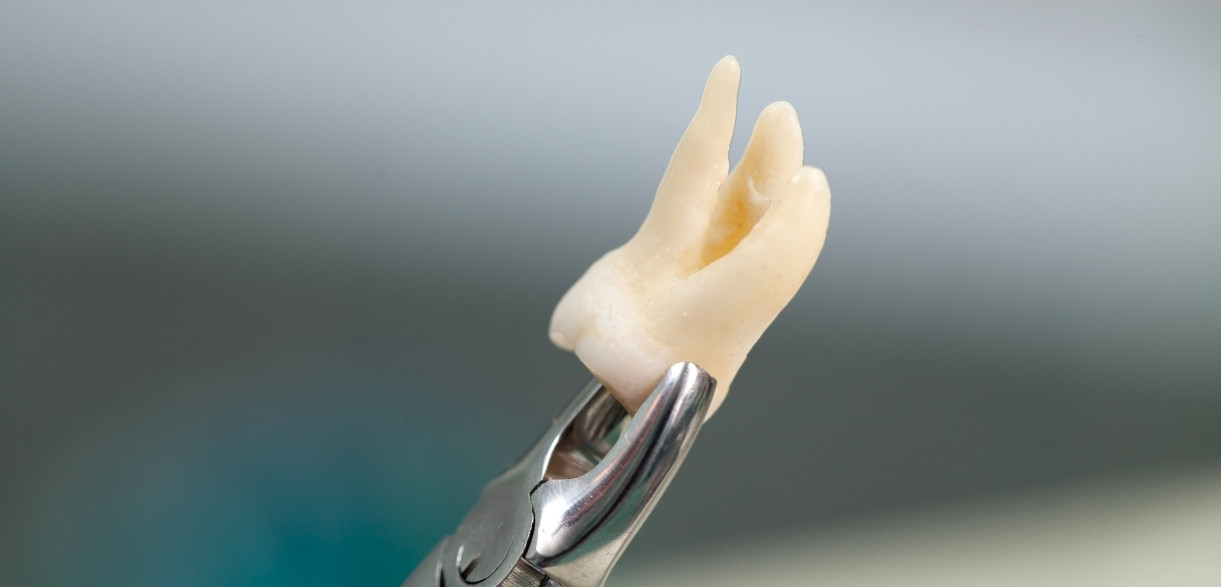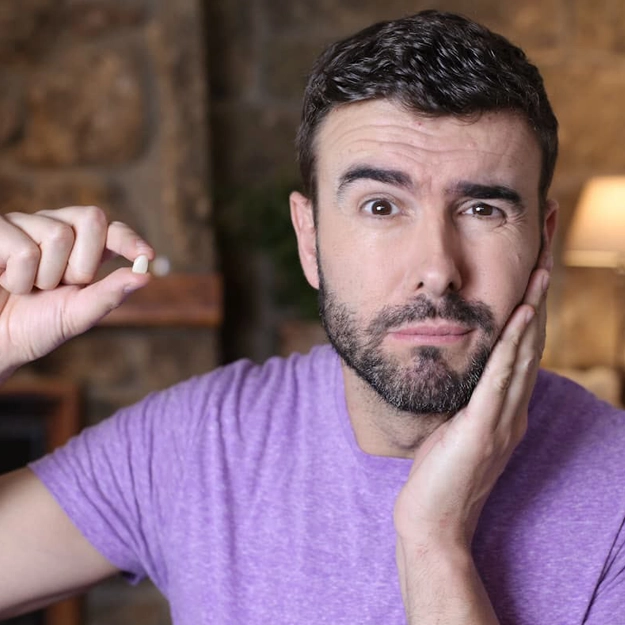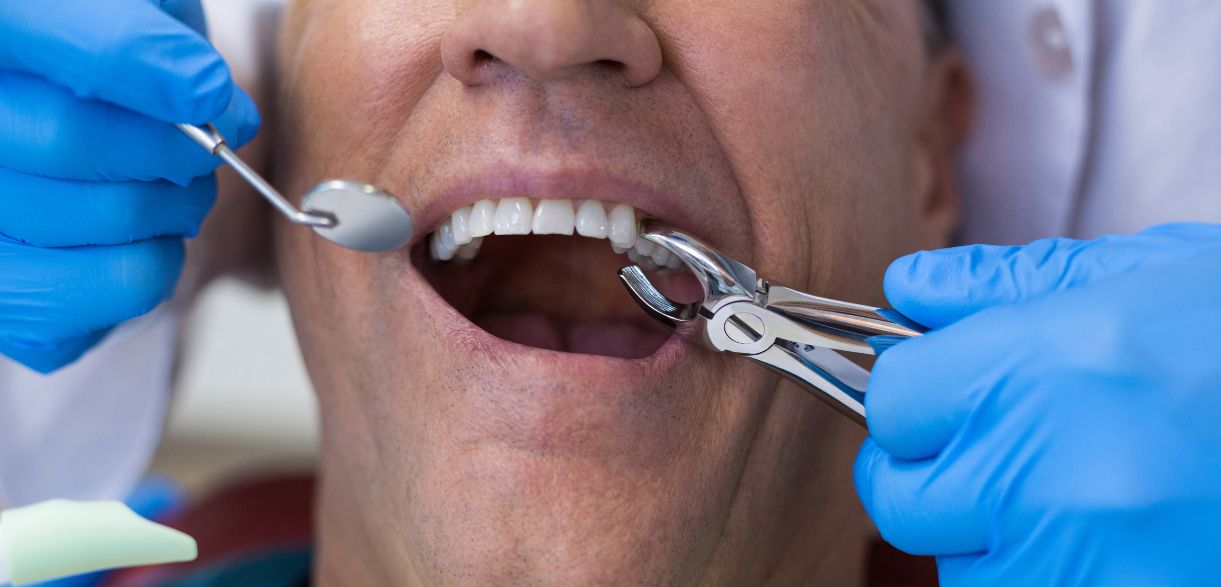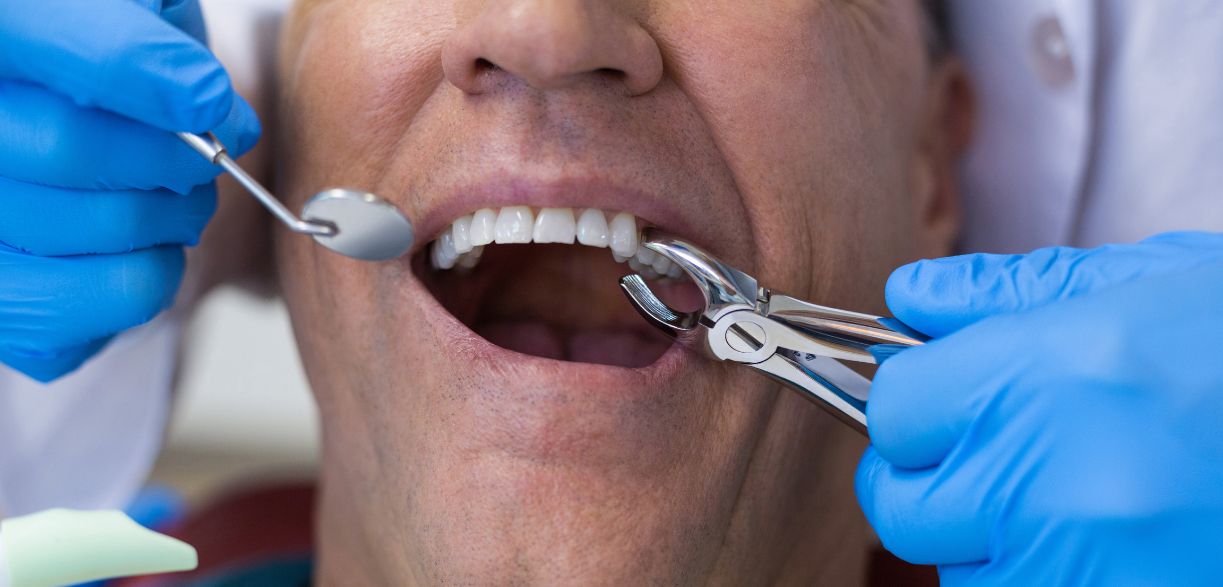
Your tooth was extracted one week ago, and you still feel pain. That dull ache—perhaps, in fact, sharp throbbing—is persisting much longer than you thought. Naturally, you’re wondering: Is this normal? Did something go wrong?
First, some soreness occurs after tooth extraction. But pain five days after the procedure might indicate something is wrong with your mouth. Let’s investigate the causes of this persistent pain and find the best way to relieve it.
Is Pain Normal 7 Days After a Tooth Extraction?
Most people find pain intensity at its worst in the first few days after the extraction. By day 7, they can feel significantly better, if not entirely well.
Still, the pain level will depend on:
- Extraction complexity (was it an easy pull or a surgical extraction?)
- The site (wisdom teeth tend to be more problematic)
- Your body’s healing and postoperative regimen.
Common Causes of Pain After 7 Days
1. Dry Socket (Alveolar Osteitis)
This is the most common complication of tooth extraction. Typically, a blood clot develops in the socket and protects the bone and nerves while healing occurs. If, for some reason, this clot is dislodged or has never formed, bone within the cavity becomes exposed, and it’s rather painful.
Signs of dry socket :
- Gnawing or radiating pain starting a few days after the extraction, worsening thereafter.
- Bad taste or bad odor from the mouth.
- A visible hole or bone in the socket
2. Infection
Infection occurs in a mouth devoid of external cleanliness.
Signs of infection include:
- Swelling worsens in a few days’ time.
- Fever or chills symptoms show.
- Foul-smelling pus or halitosis
- Continuous pain fails to improve with time.
3. Food Debris
Irritation or infection can occur when food particles or bacteria lodge in the socket. This is most likely to occur with wisdom teeth, where it is difficult to clean properly.
4. Jaw Soreness or Muscle Strain
If opened wide during the procedure, especially with wisdom teeth, surrounding muscles may still be sore or tense even one week later. This mimics tooth pain but is muscular rather than a toothache.
5. Nerve Irritation
In rare cases, nerves nearby can get irritated, especially after lower molar removals. This results in numbness, tingling, or a dull ache that sticks around.
What to Do: Remedies & When to Involve Your Dentist
At-Home Remedies
- Gently rinse with warm salt water 2-3 times a day for cleanliness.
- Cold compresses to the cheek for swelling.
- Take over-the-counter pain medications such as ibuprofen to combat pain and swelling.
- Eat soft, bland foods; avoid crunchy or sharp ones. Consider trying some recipes for after wisdom teeth removal to ensure your meals are both soothing and easy to eat while you recover.
When to Call Your Dentist?
Definitely get in touch with your dental provider if:
- Pain does not improve after 3-4 days and is getting worse.
- Swelling and pus with a bad taste;
- Feverish or unwell feelings;
- The socket is white, empty, or has a foul smell (possible dry socket).
Professional Treatment
Your dentist can:
- Place a medicated dressing in the socket for the relief of pain.
- Prescribe antibiotics if there are signs of infection.
- Clean out the socket or flush out packed food debris.
A little discomfort following a tooth extraction is normal, but severe pain a week later? Now that’s your body signalling trouble. The good news: Most causes, such as dry socket or infection, can be resolved with relatively quick intervention by your dentist.
So don’t just sit there in silence and wait for the pain to subside. When in doubt, contact our dentist and get back to a comfortable recovery.





